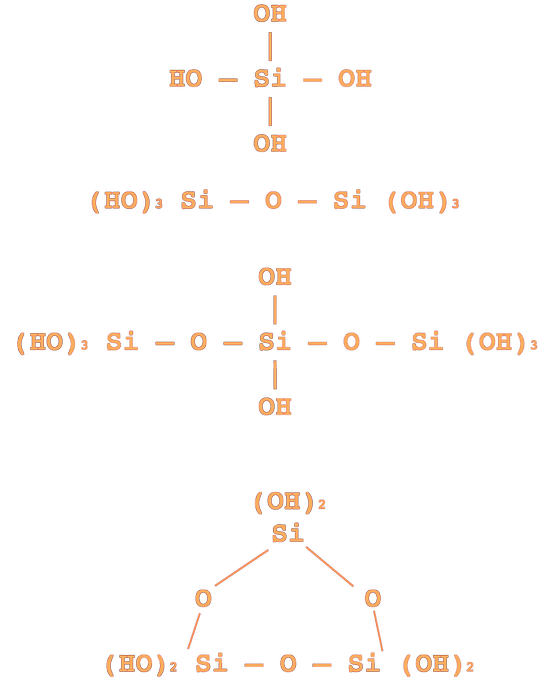Chemistry of Soluble Silicates
Soluble silicates, especially sodium, potassium and lithium silicates are generally not distinct stoichiometric chemical substances (with a specific chemical formula and molecular weight), but rather glasses or aqueous solutions of glasses, resulting from combinations of alkali metal oxide and silica in varying proportions.
The general formula for soluble alkali silicates is M2O.x SiO2
where M is Na, K or Li, and x is the ratio of silica to alkali in the product. Conventionally this is expressed as a molar (MR) or weight (WR) ratio, defining either the number of moles silica (SiO2) per mole of alkali metal oxide (M2O), or the ratio of weight percent silica to weight percent alkali, respectively. The use of weight ratio is more common within industrial applications.
All of the above alkali silicates are alkaline substances (pH values of the concentrated products being usually between 10 and 13). The alkalinity of the products increases as the MR or WR is reduced.
Alkali silicates are produced and marketed as glass lumps, ground glass, aqueous solutions or dried powders. The physical, chemical, toxicological and eco-toxicological behaviour of these products is strongly dependent on the MR/WR SiO2:M2O, as this controls the degree of alkalinity of individual products.



